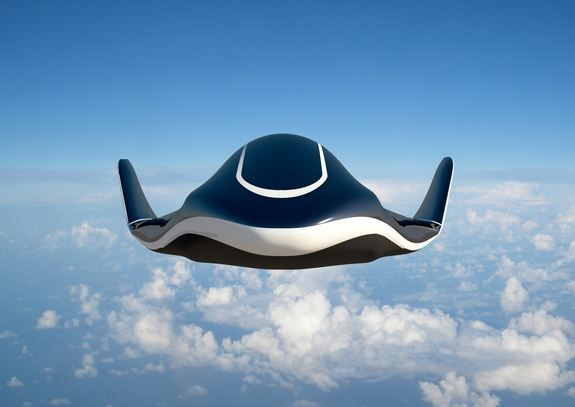Swiss Rocket Plane Company Announces Plans For Private Research Flights To Edge Of Outer Space [VIDEO]

A Swiss spaceflight company has announced its plans to upgrade the company's current satellite launching program to a manned rocket plane used for scientific research, the company announced Monday.
Swiss Space Systems (S3), a start-up spaceflight company formed in March and who says it has no immediate plans to enter the tourism market, said its sights are currently set on low-cost, manned, suborbital research missions. These manned missions would replace the current plans of unmanned satellite launches from their rocket plane, the SOAR shuttle (Suborbital Aircraft Reusable shuttle).
S3 hopes to launch unmanned test flights of the SOAR shuttle by 2017 and the first commercial satellite launches by 2018. The company hasn't announced its timeline for manned flights, but says the plans are on its radar screen.
The Switzerland-based company struck a deal on Monday with veteran aerospace company Thales Alenia Space to begin work on a pressurized compartment on the SOAR shuttle to house experiments and crewmembers on future flights, the AP reported from Paris.
"Thanks to this, we will be able to enhance our system by replacing the satellite cargo with a similarly developed pressurized module inside the SOAR," said S3 CEO Pascal Jaussi, "allowing S3 to perform microgravity research flights," which Jaussi noted were likely to be more attractive to researchers than sending an unmanned satellite launch into space or the International Space Station.
The original plans for SOAR have the small rocket plane hitching a ride on the back of an Airbus A300 jumbo jet. After the jet climbs to an altitude of 30,000 feet, the SOAR shuttle will separate and launch rockets of its own until the plane reaches approximately 62 miles above the Earth, or the edge of outer space. The shuttle will then deploy a small satellite (551 pounds) with rocket motors of its own, which, once engaged, can propel the satellite into orbit 434 miles above Earth.
S3's has a budget of roughly $270 million and employees 40 people so far in their race with other European companies aimed at serving the suborbital transportation market. But so far the U.S.-based Virgin Group has significant plans under way for their 2014 commercial satellite launch, Virgin Galactic.
Virgin Galactic ran the first test of its rocket-powered space plane, called SpaceShipTwo, back in April. SpaceShipTwo essentially looks like two airplanes fused at the wing, with a rocket in the middle. The company currently sells tickets for the flight. Each ticket costs $250,000.
XCOR Aerospace, who is based at the same Mojave, Calif. airport at Virgin Galactic, has their own craft well, which it calls Lynx. Lynx's design differs from the SOAR shuttle only slightly, resembling something of a futuristic space shuttle.
Company officials for S3 have participated in working groups with the European Aviation Safety Agency, a pan-European regulatory agency which monitors compliance with safety rules, Jaussi said.
The CEO hopes SOAR's technology will revolutionize the way inter-continental travel works around the world.
"Far from wishing to launch into the space tourism market, we want rather to establish a new mode of air travel," Jaussi noted, "based on our satellite launch model that will allow spaceports on different continents to be reached in an hour."



























